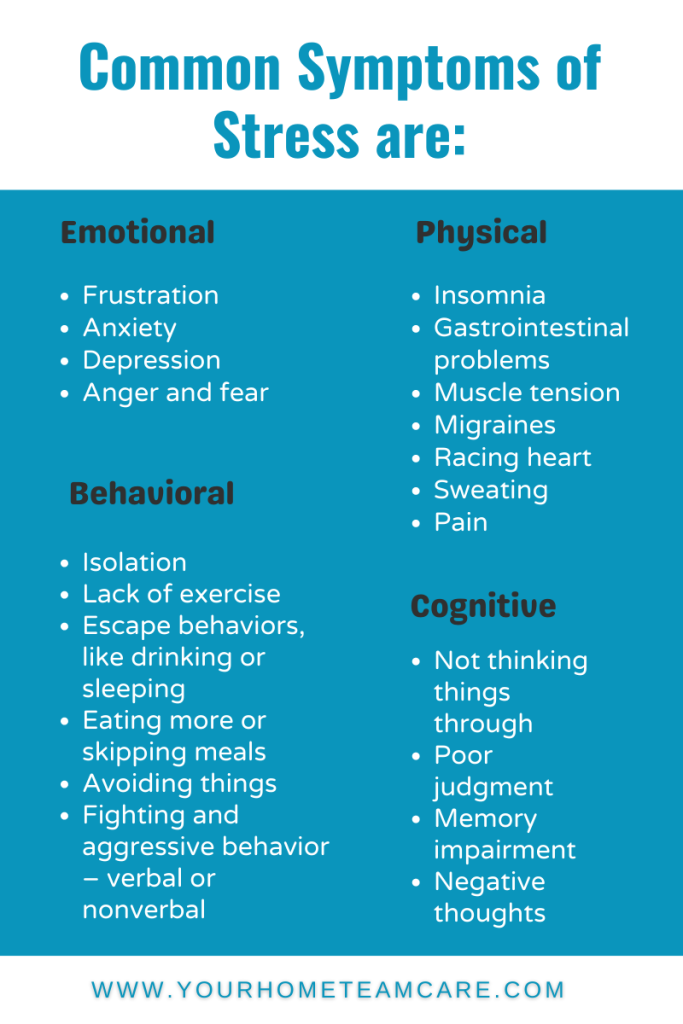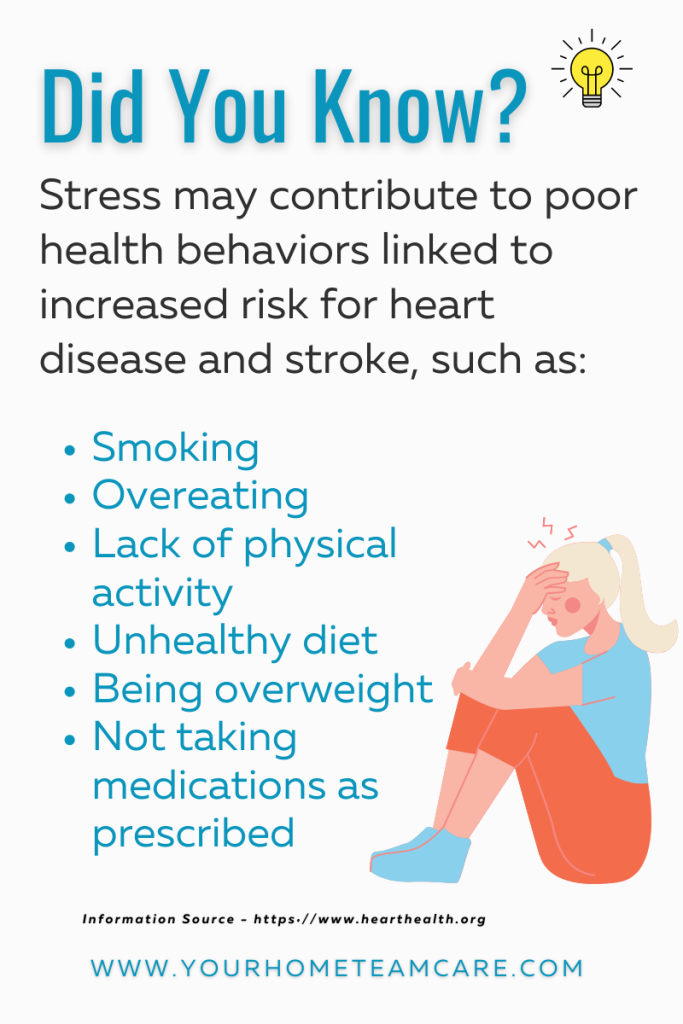We live in a fast paced technology driven society, and with that comes a lot of stress in many different forms. Whether it’s stress form our jobs, family squabbles, finances, the passing of a loved one or some other issue, there are many stressors in our lives.
Stress can affect people in all age groups and can be harmful to not only our mental health but our physical health as well. This is why it is important to understand what causes stress and how we can best manage or relieve that stress. For the elderly, there are numerous things that can bring about stress in their lives including:
- Caring for their grandchildren
- Changes in their lifestyle or financial status
- Death of a spouse, family member or close friend
- Caring for their sick spouse
- Being bed-ridden or disabled which limits their mobility
- Not being able to live independently
- Being isolated/sent to a nursing home/living away from family members
When we are stressed out our bodies usually sends us signals to alert us of the change in our mental and physical state. It’s important to be aware of these signs. You may experience tension in your neck, back and muscles. It can become difficult for you to relax or think clearly, this happens when your mind is clouded with too many things. Being stressed can also cause you to be depressed which can lead to mild/severe headaches.
If you’ve experienced an ache or pain out of the blue, and wasn’t sure why you were in pain, chances are you were stressed out about something and that stress manifested itself physically. These aches and pains are usually the first signs of stress. Restlessness is also another common sign of stress. Stress can lead to depression, which is a common disorder, however, when left unchecked depression can lead to serious mental illnesses. By learning the signs and symptoms, you will be able to properly manage your stress before it turns into something more dangerous or life threatening.
Stress can affect your body in many different ways, some common forms are; high blood pressure, irregular breathing, strain on your heart and lack of concentration.
All these reactions to stress can turn into life threatening problems. High blood pressure is a well-known precursor of more serious problems like strokes and aneurysms. Lack of concentration can cause problems while driving, operating industrial machinery, or carrying out any daily task. Irregular breathing can develop into Asthma. Any strain on your heart is bad for your health and can lead to a heart attack, stroke and even death.
Tips To Manage/Relieve Stress
For seniors it’s important to have a support system/group or person, to share your thoughts and feelings with. By sharing your difficulties and trials with someone else, it can help you better cope with the tough situations in your life. Having a confidant will give a means to vent your frustrations, as well as they can give you a different perspective/aide in your situation.
Taking care of your physical body also greatly affects your mental health in a positive way. When you feel stressed, getting involved in some type of physical activity can help to take your mind off of whatever is frustrating you. It can also help you to calm down and clear your thoughts. Try taking on a new hobby either, swimming, jogging, cycling, yoga or any other safe sport. You will find that when you allow yourself to take on healthy habits in your daily life, when stressful moments arise, you will have an outlet to relieve your stress because it is already an active part of your lifestyle.
Volunteering is a wonderful way to take your mind off of your current situation and do something for someone who is less fortunate. A good thing to note about being a volunteer is that it not only helps out the person in need, but it can also boosts your confidence and give you a better perspective on life.
Sometimes stress can also come from not having enough time to get things done. Or if you’re retired, having too much time on your hands. Planning out your days might help you feel more in control. If you have too many things to do and not enough time, plan out your days based on your tasks and put together a nice daily schedule for yourself. This will help you function better and also give help you see what needs to be done and at what time it needs to be done. Having a task list is wonderful to keep you focused and also organized so that you know exactly what needs to be done and when.
If you have too much free time, you can put together a daily or weekly schedule filled with things that make you feel happy and not stressed. Pencil in days for new hobbies, sports activities, outings and events in your local community etc.
Most importantly make sure you also remember to take time for yourself each day, whether it’s to take part in a physical activity, work on a hobby, meet up with friends/family or just to relax and enjoy some quiet time alone.



